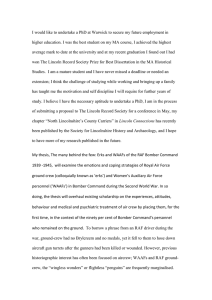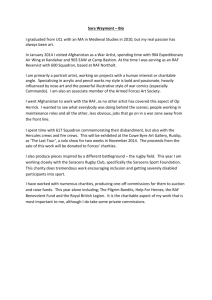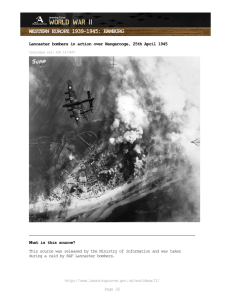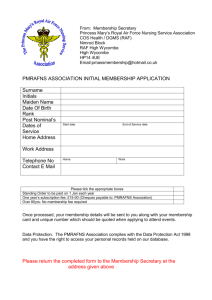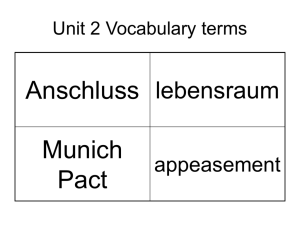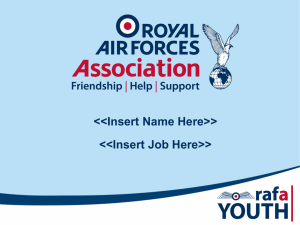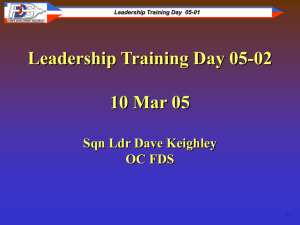Battle of Britain – The first great air battle in... Hitler wanted to control the air so he could prepare... destroying the British Navy
advertisement
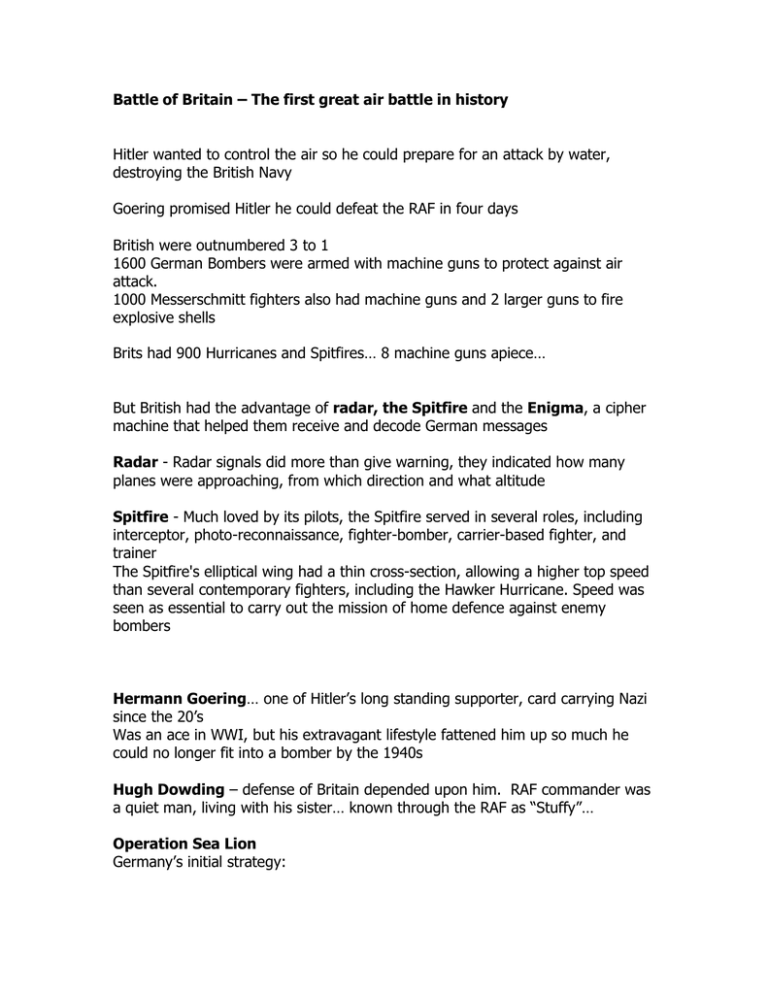
Battle of Britain – The first great air battle in history Hitler wanted to control the air so he could prepare for an attack by water, destroying the British Navy Goering promised Hitler he could defeat the RAF in four days British were outnumbered 3 to 1 1600 German Bombers were armed with machine guns to protect against air attack. 1000 Messerschmitt fighters also had machine guns and 2 larger guns to fire explosive shells Brits had 900 Hurricanes and Spitfires… 8 machine guns apiece… But British had the advantage of radar, the Spitfire and the Enigma, a cipher machine that helped them receive and decode German messages Radar - Radar signals did more than give warning, they indicated how many planes were approaching, from which direction and what altitude Spitfire - Much loved by its pilots, the Spitfire served in several roles, including interceptor, photo-reconnaissance, fighter-bomber, carrier-based fighter, and trainer The Spitfire's elliptical wing had a thin cross-section, allowing a higher top speed than several contemporary fighters, including the Hawker Hurricane. Speed was seen as essential to carry out the mission of home defence against enemy bombers Hermann Goering… one of Hitler’s long standing supporter, card carrying Nazi since the 20’s Was an ace in WWI, but his extravagant lifestyle fattened him up so much he could no longer fit into a bomber by the 1940s Hugh Dowding – defense of Britain depended upon him. RAF commander was a quiet man, living with his sister… known through the RAF as “Stuffy”… Operation Sea Lion Germany’s initial strategy: 1. attack British naval convoys in the English Channel (July) – wasn’t effective enough for Goering… 2. attack British airfields (August) – “Attack of the Eagles” – still didn’t paralyze the RAF as Goering had hoped… 3. Hit British radar stations (August-September) Goering had struck at the heart of RAF defenses, but the bomber crews paid a heavy price. 4 never made it back, 2 went down in the Channel. German bomber losses were becoming unsustainable. More bombers had to get through… August 19th – fateful decision… another tactical change. Fighters, from now on, Messerschmitt had to protect the bombers much more closely, flying alongside and sticking like glue to them… flying slowly and low… throwing away key advantages of height and speed. Goering’s plan seemed to be working. Key sector stations were struggling to stay operational. 6 raids in 3 days at the end of August… all telephone lines but one was cut. By early September, fighter command in southern England was on the edge of collapse. Airplane losses were outstripping production. Across the Channel, the # of boats preparing to invade was increasing. Mistake! Goering directs Luftwaffe to direct their attacks away from airfields and into London. Luftwaffe stopped bombing RAF airfields and ordered daylight bombing raids on London (blitz) This shifted focus allowed the RAF to train and rebuild its strength, and Hitler would lose this important battle. Pairs of squadrons paired up and attacked together. “Big Wing” formation… 5 entire squadrons joined forces and flew south towards the enemy. Ever since the battle had begun, the Luftwaffe had been told that victory was imminent as the RAF was close to collapse. For German bombers, they were so low on fuel once they reached London, that they only had 10 minutes before they had to turn back… otherwise they would run out of fuel before they got back across the Channel. Dogfights became frenzied, as some RAF pilots took on bombers head on. 2 major raids on London that day… the interval between allowed RAF pilots to land, refuel, grab some food and get ready again. The confidence of the German pilots was ebbing away. By the end of the day the RAF had destroyed 60 German fighters and bombers at a loss of 26 of their own fighters. Decisive blow to the Luftwaffe – now remember as Battle of Britain Day. Robbed the Germans of any chance of victory. By 30th of September, 1940, Hitler “postponed” Operation Sea Lion Significance? 1. Hitler denied in the West, turns to the East (USSR)) 2. With Britain intact, no quick surrender = long war 3. Channel proves to be the springboard for D-Day 4. First loss of Nazi forces
